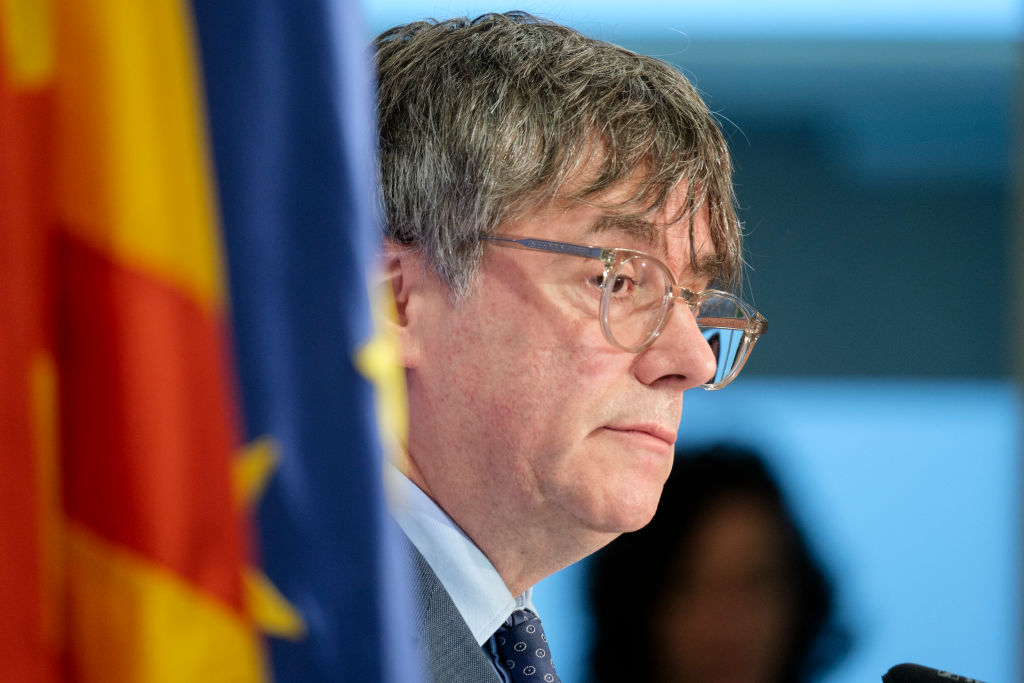Charles de Gaulle famously lamented that it was impossible to govern a country with 246 types of cheese. After Sunday’s election, French President Emmanuel Macron will wish he had it so easy.
At first glance, it appears that Macron’s gamble has paid off. National Rally had the wind at its back after its strong first-place finish in the European Union elections. Had Macron played it safe, it is easy to see Marine Le Pen and Jordan Bardella using that to start an anti-Macron bandwagon.
Not having a clear legislative majority, Macron and Prime Minister Gabriel Attal could have seen polling move even further toward National Rally.
That momentum has now been decisively halted by National Rally’s clear second-round defeat. Macron and the leftist New Popular Front’s explicit anti-National Rally alliance has, for the time being, recreated the “republican front” that has kept the right-wing party and its predecessor out of power throughout the Fifth Republic. National Rally’s 143 seats are well below expectations, and much lower than even the final pre-weekend poll projections which had them winning between 170 and as many as 250 seats.
The balkanized composition of the new National Assembly, however, makes this only a temporary victory for Macron. His own Ensemble alliance lost heavily, dropping from 245 to 166 seats. Attal says he will resign today, Monday, in acknowledgement of the outcome. Finding his replacement will prove elusive at best.
That is because the New Popular Front finished first, and the largest single party within the left-wing alliance is Jean Luc Mélenchon’s La France Insoumise (France Unbowed). Macron attacked LFI as “extreme during the campaign, putting it on par with National Rally as out of bounds for government.”
Mélenchon has never accepted this, and so far his erstwhile centre-left allies have not abandoned him. If they keep that stance, Ensemble will have to look to its Right for a potential partner.
The centre-right Republicans could be that ally, but they don’t have enough strength to give Macron a majority. Ensemble, the Republicans, and various conservatives – known in France “diverse droite” – have only a combined 226 seats. That’s 63 short of the 289 seats needed for a bare majority.
Faced with this reality, Macron must then turn back to his Left and either split or make an arrangement with the NFP. Either will cost him dearly.
Socialist leader Olivier Faure told supporters that the NFP’s program will be their “compass,” and that Macron’s pension reform bill raising the retirement age must be repealed. The Left will drive a hard bargain in any negotiations to form a government, a bargain that will inevitably unravel many of Macron’s hard-won economic gains.
Macron’s position will remain on shaky ground even if he can make a deal. The NFP is a five-party coalition ranging from the centre-left Greens to the New Anti-Capitalist Party. Ensemble itself is a multi-party coalition that includes the centre-right Horizons. It is hard enough to keep a three or four-party coalition together. An eight-party one that spans centre-right to far-left will prove challenging to say the least.
Macron surely knows this. Yet there are two underappreciated advantages to destroying his own government by calling the early snap vote.
The first is that this puts the legislative assembly’s term out of sync with the president’s. The Assembly is invested for five years starting with this election, while the president must leave office in 2027. Assuming the Assembly isn’t dissolved before then, it will still be in office after the new French president enters the Elysée Palace. That alone would hamstring Marine Le Pen should she win, requiring her to immediately dissolve the legislature and hope she can get a majority of her own.
That might prove to be difficult owing to France’s political geography. National Rally won only two of France’s 37 seats filled by voters living abroad or in its overseas departments. It also did not win a single one of the 54 seats in Paris and its Petite Couronne, and it carried only 4 of 43 seats in the Parisian exurban departments in Ile de France.
Combined with its lack of strength in other large urban areas, it would be very hard for National Rally to win a legislative majority on its own even if its presidential candidate does win a majority of votes nationwide.
Macron has another trick up his sleeve: dissolving the legislature again. France’s Constitution prevents him from doing that for another year, but what’s to stop him from gambling again that the French will turn back to him and his coalition after a chaotic year of cohabitation with the Left?
That might work, or another snap vote might prove to be France’s Brexit referendum, the political gamble that spelled doom for David Cameron. But Macron has always been a cunning man in a hurry and might think one more roll of the dice would pay off.
Macron clearly hopes this snap election was akin to releasing some water as it piles up behind a dam, lessening the pressure that might cause it to break. Unless he can somehow navigate the downstream rapids his move has created down, though, he may find this is just the last drip before the dam finally bursts.





Dislike, despise, distrust: what drives French votes